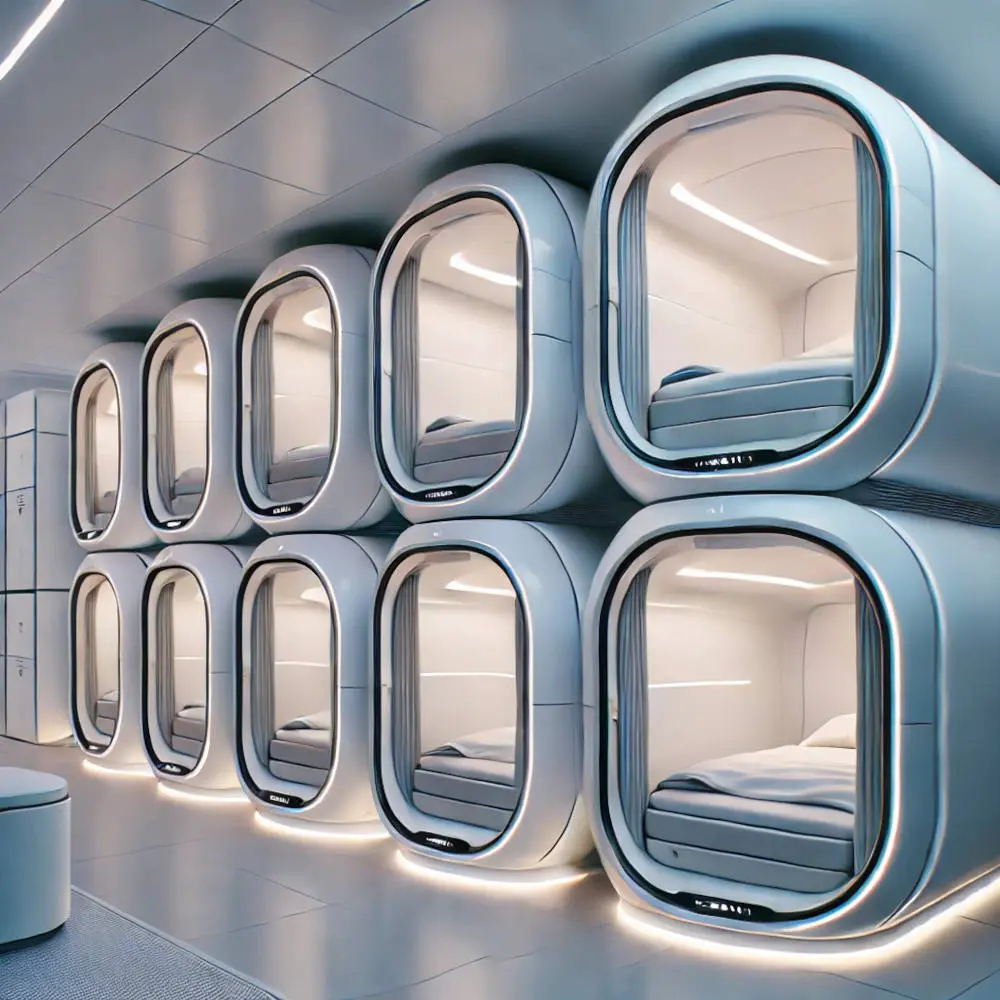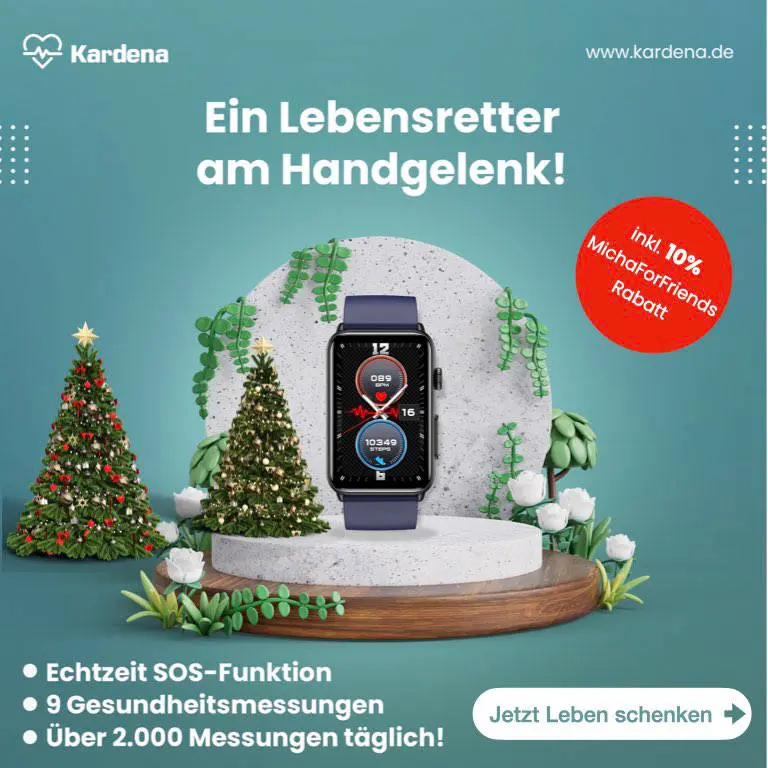Sleep headphones - solution or problem? Sleep is a very complex topic, as is the…

Sleep analysis in capsule hotels?
What is (still) unimaginable in our part of the world is commonplace in Japan. Instead of hotel rooms, people there sleep in sleeping pods. I affectionately call them “sleeping pods”.
Nine Hours is one such hotel chain that offers such suppositories for overnight stays.
The Japanese see less of a problem here, as everyone ends up sleeping in the same bed, no matter how big the room around them is.
Workers, students and tourists love this simple accommodation option.
But Nine Hours is now going one better.
On request, your own sleep can be analyzed free of charge during your overnight stay.
That sounds exciting at first, if you put data protection aside for a moment.
A quick analysis of sleep
With soft lighting, comfortable bedding and a curtain for privacy, a stay costs between 3,800 and 30,000 yen ($26 to $203) per night.
But here’s the kicker: overnight guests can have their sleep analyzed at no extra cost.
A camera, a microphone and a body sensor in the capsule track every movement overnight.
“We wanted a company that can survive market slumps, even if tourism fails” Yasuyuki Watanabe, Director of Hotel Nine Hours.
A few years ago, Nine Hours invested significant resources to begin sleep monitoring and data collection.
Its cabins use sleep analysis technology that is unique in the industry.
If guests consent to data collection, their heartbeat, body rotations, snoring, breathing rate and sleep duration are monitored.
At the end, guests receive a detailed report to take home or by e-mail.
But there is more.
Anyone found to be at risk of sleep apnea or depression is connected to a specialist via a special reporting system.
The hotel chain, which currently has 13 hotels in 5 cities in Japan, now collects data from 1 million guests per year, according to information on its website.
However, not every hotel is equipped with an analysis.
According to Watanabe, however, profits are now also being made.
Product placement
But there is more behind these profits.
On the one hand, of course, the mediation of counseling sessions, because, as already mentioned, contact is made with a specialist (whatever that looks like) in the event of abnormalities.
It is not clear from the source what the reporting situation looks like if you are even classified as a “high-risk patient” by the system.
However, in Japan it is quite possible that this could trigger a wave of alarm.
But there’s more.
When the customer is back at home, they receive an email with the sleep analysis around a week later.
This also contains purchase recommendations for products such as a sensor kit for the home to examine sleep patterns more closely.
What do the researchers say?
Sleep experts and, above all, scientists tend to take a critical view of this model, as much more complex techniques are required to analyze sleep correctly, as brain waves, for example, have to be measured in order to accurately assess sleep cycles.
Incidentally, this is precisely the topic we also cover in our ChronoCoach training, as the sleep analyses commonly used by trackers do not make use of the necessary measuring points, which is something you need to know.
What do I say?
There are always two sides to everything.
The basic idea is ultimately no different to that of sleep trackers, but optimized with camera tracking, which allows a more precise sleep analysis.
Nevertheless, the analyses should be evaluated in the same way as those of sleep trackers.
In essence, trackers are not about a medical analysis or even a diagnosis, but about getting a rough overview of your own sleep patterns.
However, this is only possible if you track your sleep over a long period of time in order to be able to evaluate outliers in the measurements, for example, which are due to technical reasons.
If you only stay in a hotel for one day, you will not receive a valid analysis that goes beyond the evaluation of this single night.
However, it is precisely this long-term view that is usually not possible in these sleep pods or in hotels in general.
Depending on the length of your stay, you only get a very short section of your sleep profile.
This can lead to misjudgements.
This is perhaps different in vacation hotels, where everyday behavior is usually different on vacation than in regular everyday life.
What also bothers me is that this business model plays with this inaccuracy.
Nobody knows whether the analyses ultimately correspond to actual sleep behavior, as you are in a private, non-medical facility, as far as can be seen.
This means that a short stay can make waves that are completely out of touch with reality, especially if the aim is to sell products.
Of course, it would be interesting to see studies that show what sleep analyses in a sleep laboratory would look like in parallel, in order to show to what extent a sleep analysis carried out there corresponds to one carried out in a laboratory.
Conclusion
The basic idea seems exciting at first, because the business of hotels is sleep.
So why not take the offer to a new level?
However, it is a fine line on which a provider is walking here, because integrating medical elements into a business model on which subsequent services are also based is initially fraught with questions, at least from my perspective.
Anyone who wants to take advantage of such a sleep analysis should really see it primarily as a “gimmick” and not visit a sleep expert immediately after a night’s sleep.
Should the technology develop to such an extent that such a capsule can actually produce valid analyses, then the “sleep analysis” aspect would be quite exciting for local hotels without having to adopt the capsule model.
However, as a business model in which product sales and referrals for specialist advice play an important role, I see the danger that money comes before serious analysis.
And attached alarm chains should also be checked very carefully in advance from a medical point of view in order to focus on the best possible care and not the best possible profit.
Incidentally, Nine Hours currently collects data from over 1 million users per year.
The hotel chain is planning to expand internationally and is aiming for 30 capsule hotels with sleep monitoring in Europe and 10 in North America by 2030.
It is therefore possible that one of these sleep capsule hotels will soon open in cities such as Berlin, Frankfurt or Cologne.
Speaking of money: as already mentioned, overnight stays in such a capsule cost between $26 and $203, the latter probably more in urban centers.
Let’s see what that looks like in Germany.
Sources:
https://ninehours.co.jp/en/sleep-analysis-report (retrieved on 23.09.2024)
https://www.bloomberg.com/news/newsletters/2024-09-16/at-this-japan-hotel-a-night-s-stay-doubles-as-a-sleep-study (retrieved on 23.09.2024)
Zum Thema passende Beiträge
- Sleep headphones - 3 alarming reasons against digital sleep masks
- Flabby without sleep - erectile dysfunction due to poor sleep?
Erectile dysfunction due to sleep problems - is that possible? In principle, it can be…
- 7 hours of sleep is enough?
Sleep duration - how much sleep do we need? The RNA BodyClock Chronotype Hair Root…


